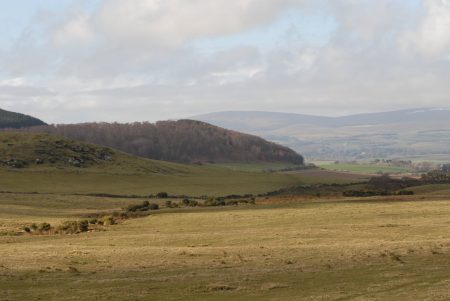 Conservation plans are underway to create a “Great North Bog” to restore thousands of acres of peatland stretching from the Peak District to the Scottish Borders. The area covers five national parks including the Peak District; Yorkshire Dales, North York Moors, the Lake District and Northumberland.
Conservation plans are underway to create a “Great North Bog” to restore thousands of acres of peatland stretching from the Peak District to the Scottish Borders. The area covers five national parks including the Peak District; Yorkshire Dales, North York Moors, the Lake District and Northumberland.The peatland restoration project is estimated to cost in excess of £200 million over a 20-year lifespan and involves protecting and restoring 2,700 square miles of upland peat. The Great North Bog area is estimated to store over 400 million tonnes of carbon.
Due to annual erosion and the drying-out process of peatlands, it is estimated 3.7million tonnes of carbon is released per year. This equates to approximately 1% of the UK’s annual carbon emission of 350 million tonnes. The climate change committee estimates the amount of healthy peatland required to help the UK achieve its carbon targets needs to be increased from the current 25% to 58% by 2035 and to 79% by 2050.
Peat bogs are the dead remains of trees and plant-life that died over 12,000 years ago. The sheer size and scale of the project will cause concern to land-owners especially to sheep farmers grazing the upland regions. Re-hydrating or repairing the peatlands will be a lengthy; costly and laborious process.
The benefits are minimal, with peat bog grow-back estimated at 1cmm per annum albeit compared to an annual loss of 25mm per year. On that basis, it could be argued, something is better than nothing. However, reducing carbon levels is more beneficial and a more effective strategy, rather than merely storing carbon.
Restoring an area of 2,700 square miles may well result in a financial drain. The area is from Stoke to the Scottish Borders. So far, there’s not been any mention of compensation to sheep farmers and land-owners that currently manage the peatlands included in the £200 million scheme.
Old Victorian drainage systems helped turn peatlands into more animal productive landscapes. Post Second World War, as a result of greater mechanical engineering and the need for increased levels of home-grown food production, the upland regions were drained. During the 1950s and 1960s, UK government schemes paid land-owners to drain moorland bogs for sheep grazing.
The UK is set to host the COP26 United Nations climate summit in Glasgow and G7 Summit in Cornwall in November and the UK government is keen to back environmental projects. Environmentalist’s claim restoring peat lands will help reduce flood risk; assist water filtration, aid biodiversity and will create a haven for wild flowers and wildlife as well as, aid tourism. National Parks UK is currently drawing up funding procedures for the project.
Source: Bernicia Media
(T2, D1)











